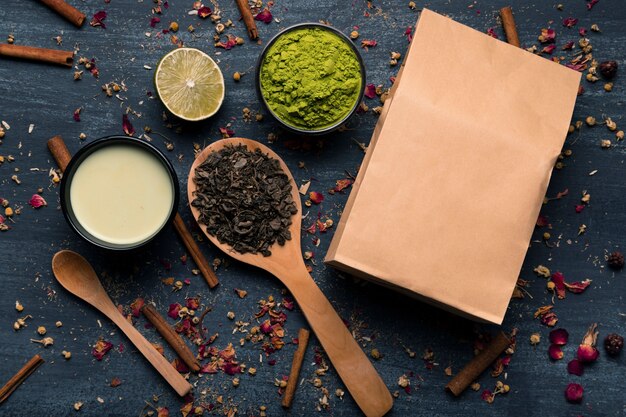
You can’t rely on supplements to make up for a poor diet, lack of sleep, or high stress. Even with a balanced diet and good sleep, you might still miss out on essential nutrients because modern foods often lack them. To address this, I prepare homemade herbal teas rich in micronutrients and occasionally include green superfood powders.
Green superfood powders are packed with multiple servings of vegetables and other beneficial ingredients like probiotics and herbs that support your immune system. Switching to an ancestral or whole-foods diet can improve one’s intake compared to the grain-heavy and processed Standard American Diet. Yet, even these seemingly healthy diets might not provide all the micronutrients and antioxidants needed.
Over the past century, industrial farming has drained topsoil of essential minerals and beneficial bacteria, affecting the mineral content of our vegetables. This decrease, along with fertilizers and pesticides, could contribute to modern illnesses. As Dr. Thomas Cowan notes, hunter-gatherer diets included a much wider variety of vegetables than we typically consume today. Our current veggies have been modified to be sweeter and less bitter, reducing their micronutrients. Consider whether your family eats 20 different veggies daily—ours does, thanks to herbal teas and green powders.
Store-bought veggies are often harvested long before they reach your table, traveling far distances, which reduces their nutrient density. Given the stress and pollution in modern life, we need more micronutrients. B vitamins and magnesium help manage stress, while other nutrients support the removal of harmful chemicals we’re exposed to. Dr. Bruce Ames highlights how low micronutrient levels can disrupt metabolism, leading to fatigue, immune issues, and increased disease risk. Taking a multivitamin and mineral supplement is a cost-effective way to avoid nutrient shortages.
Whole foods are the best source of nutrients, as vitamins in natural combinations, like those in fruits or egg yolks, work better together. Nutrients from whole foods are also more bioavailable and may contain undiscovered beneficial chemicals. Green supplements, made from whole food sources, help ensure sufficient micronutrient and antioxidant intake. While soil minerals have dwindled, marine sources remain rich, like spirulina and chlorella, which offer a range of nutrients.
However, not all green powders are equal. Be cautious of additives that make them taste good but could be harmful. Proper preparation, like gentle freeze-drying, preserves nutrients. When choosing a powder, opt for ones from reputable companies that ensure nutrient integrity.
Greens powders vary in content and benefits. Marine greens, such as spirulina and chlorella, are nutrient-rich but may not taste great alone. Moringa is often mixed into other drinks due to its excellent nutrient profile. Traditional green powders, featuring alfalfa and wheatgrass, are known for their extensive vitamins and minerals.
If you’re concerned about gluten, wheatgrass is safe up to 11 days after sprouting, after which traditional wheat proteins develop. Most green powders don’t specify wheatgrass age, so if you have celiac disease, caution is advised.
Fermented greens, providing shelf stability and additional benefits, are newer but increasing in popularity. Blends with various superfoods offer comprehensive nutrition in one serving. Adding greens powders won’t replace a balanced diet, but they can boost your intake of needed nutrients.
Some misconceptions exist, like the theory that greens can change blood pH. While they can make urine more alkaline, they don’t affect blood pH significantly. Vegetables should be consumed for their numerous health benefits, not to alter blood acidity.
While greens are nutritious and packed with antioxidants, the USDA no longer considers ORAC scores a reliable measure of antioxidant capacity. It’s about adding essential nutrients to your diet, not chasing marketing claims.

